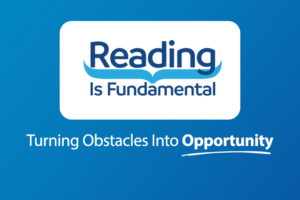Katie Kern, Program Director, Employee Assistance Funds & Scholarships | January 3, 2024
How to Administer an Employee Assistance Fund (EAF)
64% of employees cite money issues as a significant source of stress, according to the American Psychological Association. Often times that stress can be a result of unexpected hardships like medical emergencies, disasters such as house fires or flooding, or accidents.
Employers who want to demonstrate commitment to their employees’ well-being and help employees recover more quickly from financial hardships should consider establishing an employee assistance fund (EAF), also known as an Employee Relief or Crisis Fund.
How exactly do you establish an EAF, and should you manage it in-house or outsource the program to a nonprofit partner?
Whether you outsource your company’s EAF or facilitate it in-house will depend on several factors, including the size of your company, how much budget you have available to fund the EAF, and the complexity of your EAF program. Outsourcing your company’s EAF to a 501(c)(3) tax-exempt nonprofit like America’s Charities offers special legal and tax advantages, as well as reducing your administrative burden, mitigating risk, maintaining data privacy, and more.
Best of all, working with a partner like America’s Charities makes integrating an EAF into your CSR or employee giving, engagement, or wellness program a cinch – or it can form the basis of a new program.
Three Ways to Establish an EAF:
1. Public Charity
- Provides companies with the most flexibility and tax advantages
- Grants and donations are tax-free for all instances
- Has authority over grant decisions and disbursements to recipients, reducing your liability and risk
- An established charity with proven funds management experience expertise—like America’s Charities—does not have the same qualifying limits as private foundations do, as outlined in the first example. More information can be found in IRS Publication 3833
2. Private Foundation
- Requires ongoing administration, investment, and in-house knowledge of applicable laws and regulations
- More program restrictions than a public charity faces
- Many disasters and emergency hardship situations are not qualified as disasters
- Grants treated as taxable income except for qualified disasters
- Limitations to the tax deductibility of donations
- Grant decisions cannot be made by individuals in senior management
3. Company Administers In-house
- Requires ongoing administration, investment, and in-house knowledge of applicable laws and regulations
- More program restrictions than a public charity or private foundation faces
- Many disasters and emergency hardship situations are not qualified as disasters
- Grants treated as taxable income except for qualified disasters
- Donations are not tax deductible
- Grant decisions cannot be made by individuals in senior management
- Company may need to undergo discrimination testing and complete IRS Publication 5500
- Legally and financially complex; additional requirements may necessitate outside legal, accounting, and tax counsel

Get Resources and Insights Straight To Your Inbox
Explore More Articles
Workplace Fundraising + Volunteering Summit (April 2nd and 3rd, 2025)
Join us in attending this virtual summit! The America’s Charities team is joining up with other leading voices in the workplace giving space for a…
Read ArticleThe Time to Act is Now
The results of the 2024 National Assessment of Educational Progress (NAEP) are in, and the findings are, in a word, heartbreaking. This assessment serves as…
Read ArticleOpen Position: Non-Profit Account Manager, Employee Assistance Funds & Scholarships (Remote – Full Time)
We are professional, agile, customer-centric and our goal is to inspire employees and organizations to support causes they care about. We help nonprofits fundraise unrestricted,…
Read ArticleGet Resources and Insights Straight To Your Inbox
Receive our monthly/bi-monthly newsletter filled with information about causes, nonprofit impact, and topics important for corporate social responsibility and employee engagement professionals, including disaster response, workplace giving, matching gifts, employee assistance funds, volunteering, scholarship award program management, grantmaking, and other philanthropic initiatives.




